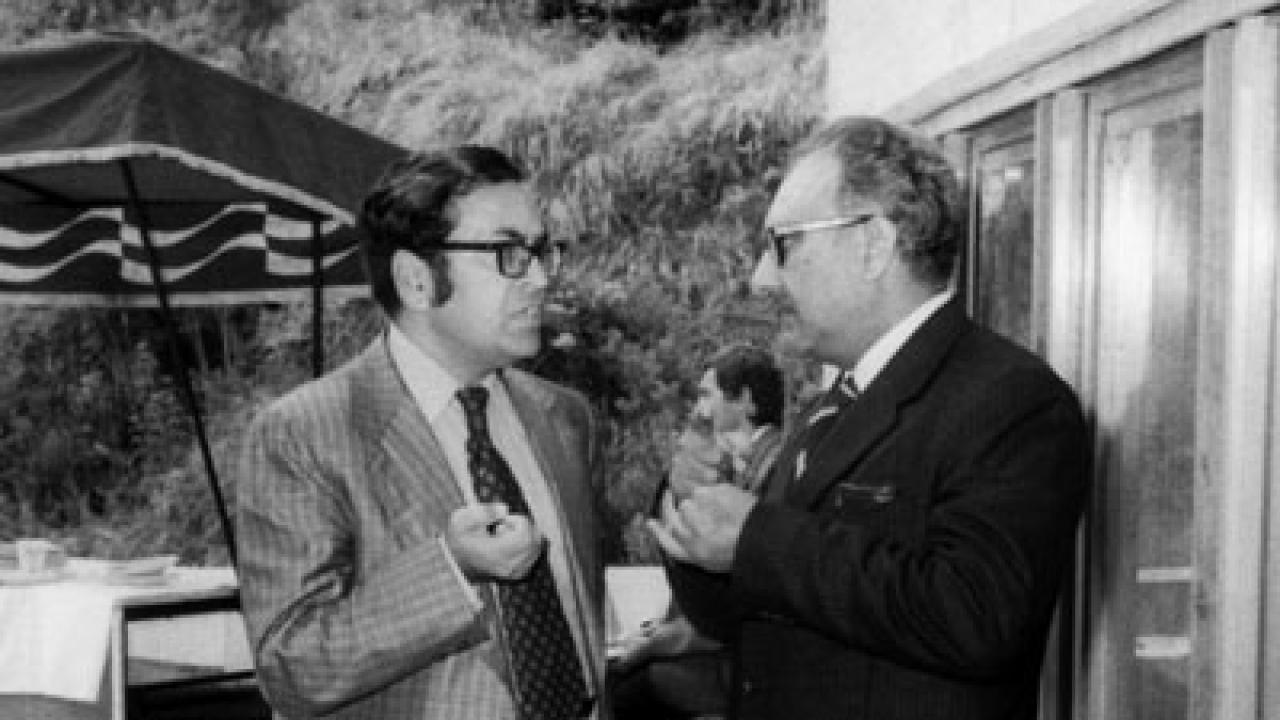
Riazuddin, born November 1930, passed away on September 9, 2013
after an extended illness. A distinguished Pakistani theorist, he
published extensively on various problems in elementary particle
physics. Working under the supervision of Abdus Salam, he obtained
his PhD from Cambridge University in 1958 on the problem of pions
and charge symmetry breaking in the nucleon system, and followed it
up by an important work on hadron mass differences resulting from
chiral symmetry breaking.
Riazuddin's book, Theory of Weak Interactions in Particle
Physics, coauthored with Robert Marshak and Ciaran Ryan,
turned out to be a classic text for a generation of particle
theorists in the 1970s. He authored over a dozen other books,
including introductory ones in quantum mechanics and particle
physics. His most widely quoted research used current algebra to
relate the rho-meson decay constant to the pion decay constant and
goes under the name of KSRF relation. It was written in
collaboration with his twin brother Fayyazuddin, with whom he
coauthored numerous papers. In later years he turned towards a
broad range of problems in strong and weak interactions, modeling
neutrino oscillations, and took a keen interest in graphene
physics.
As the founder-director of the physics institute at Islamabad
University in the late 1960s, which later became the physics
department of Quaid-e-Azam University, Riazuddin was instrumental
in bringing together a number of high-energy theorists and in
creating a strong and active group that maintained links with ICTP.
It had a globally visible profile in the 1970s and 1980s, and was
the only such group at the time. It has never been replaced. But
dissatisfaction with an insensitive university bureaucracy and
leadership led to Riazuddin's resignation from QAU, after which he
spent several years at the King Fahd University of Petroleum and
Minerals in Saudi Arabia. Returning to Islamabad, long after his
other colleagues had retired or left, he continued teaching at QAU
almost to the end of his life. He will also be remembered for
creating the National Centre for Physics on the QAU campus,
although this particular endeavour was not as fruitful.
A man of gentle disposition and exceedingly soft-spoken, Riazuddin
came from a modest middle-class background. He was was born in
Ludhiana in British Punjab. After the 1947 partition of India the
family migrated to Lahore. Of impeccable integrity, and supremely
above the nasty work-place politics around him, he was inspired in
numerous ways by his mentor, Abdus Salam. He worked quietly but
effectively to help physics grow in Pakistan. In particular, he set
up a scholarship fund for needy students from his personal funds,
and then initiated and directed a summer school on physics and
contemporary needs. His autobiography which, among other issues,
lays out his personal journey on the issue of nuclear weapons,
remains incomplete. It is unclear at this point whether it will be
published.
by Pervez Hoodbhoy
















